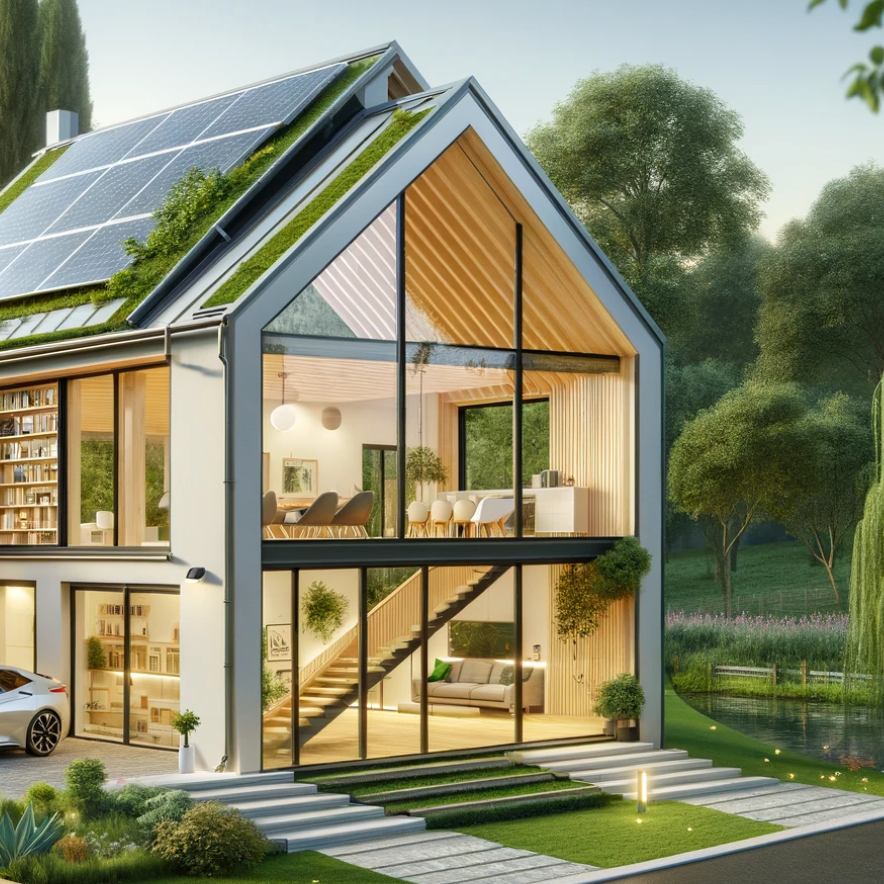
Preparing for NCC 2022: Achieving 7-Star Energy Efficiency in Homes
Share
The 7-star and whole-of-home energy efficiency requirements under the National Construction Code (NCC) 2022 are set to take effect soon, bringing significant changes to the way homes and apartments are designed and built in Australia. These updates aim to improve energy efficiency, reduce greenhouse gas emissions, and enhance comfort for residents. Here's what you need to know about the new standards and their implications for future homes.
Key Changes in NCC 2022
Energy Efficiency for Houses
The new standards will require new houses (Class 1 buildings) and major renovations to achieve a 7-star energy rating, an upgrade from the current 6-star requirement. Key changes include:
- Higher Performance for Windows and Glazing: Increased requirements for window and glazing performance to improve thermal efficiency.
- Enhanced Insulation: Higher R-values for ceiling and wall insulation.
- Structural Adjustments: Changes to building designs, including wall and roof colours, and modifications to structural floor systems to incorporate insulated slabs or sub-floor insulation.
- Thermal Bridging: New requirements for treating thermal bridging in steel framing to improve overall thermal performance.
Whole of House Energy Budget
The introduction of a whole-of-house energy budget means the total energy use of fixed building services (heating, cooling, hot water, lighting) will be assessed. This includes potential offsets from solar PV panels, encouraging the integration of renewable energy solutions.
Energy Efficiency for Apartments
For new apartments (Class 2 buildings), the average energy rating must be 7 stars, with no individual apartment rated below 6 stars. Additional requirements include:
- Elemental DTS Provisions: New provisions set at 7-star equivalence for compliance verification.
- Thermal Bridging: Similar to houses, new requirements for thermal bridging of steel framing.
- Solar Ready Zones: Provisions for future installation of onsite renewables.
- Electric Vehicle Charging: Requirements for electric vehicle charging equipment in car parking spaces.
Implementation Timeline
The new energy efficiency and condensation management changes will come into effect on October 1, 2023, with some variations and extended transition periods in certain states. Here's a brief overview:
- Victoria: 7-star provisions and liveable housing standards from May 1, 2024.
- Western Australia: 7-star standards from May 1, 2025.
- South Australia, ACT, Queensland: 7-star standards from October 1, 2023, with various conditions.
Innovative Insulation Solutions
Companies like Kingspan are leading the way with high-performance insulation products designed to meet the new standards. Kingspan's Kooltherm insulation products offer superior thermal performance, helping bridge the gap from 6 to 7 stars. By incorporating advanced insulation solutions, homes can achieve higher energy efficiency and comfort. Knauf insulation is also leading the way.
Conclusion
The upcoming changes to the NCC 2022 represent a significant shift towards more energy-efficient and sustainable housing. Builders, designers, and homeowners need to familiarize themselves with these new requirements to ensure compliance and take advantage of the benefits of improved energy efficiency. With the right design choices and materials, achieving a 7-star energy rating is not only possible but also beneficial for the environment and long-term cost savings.
